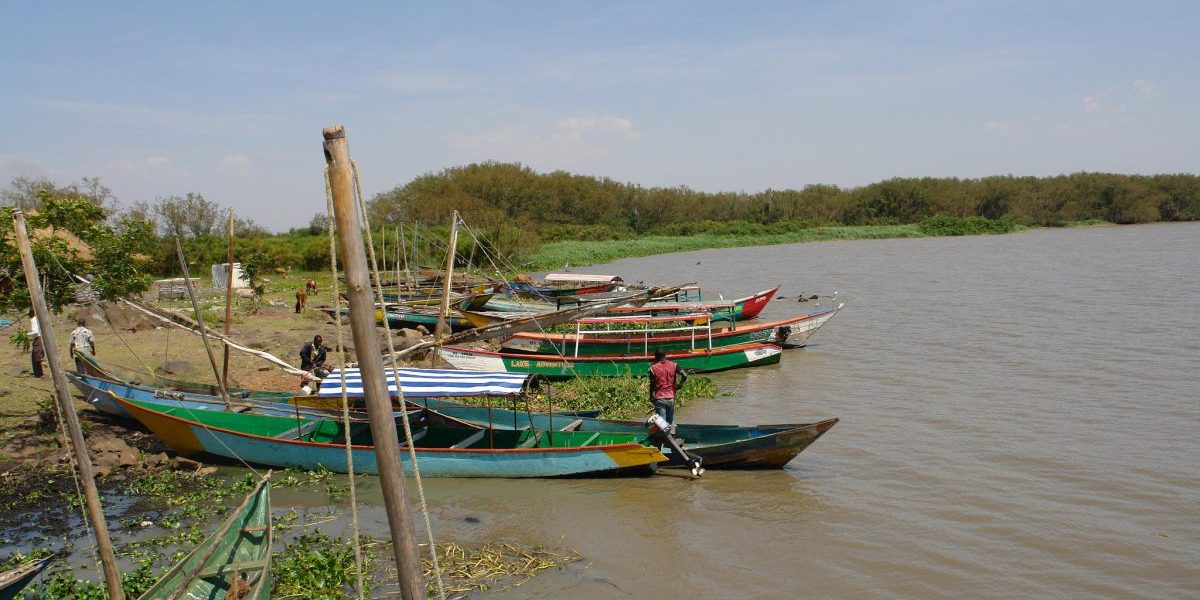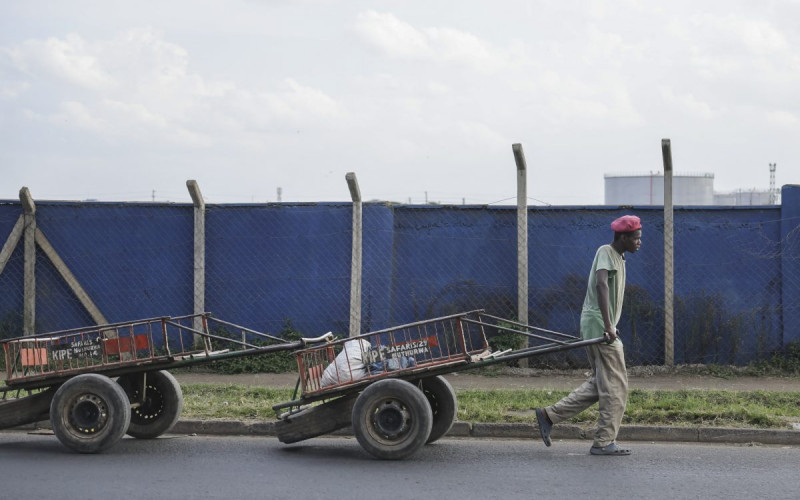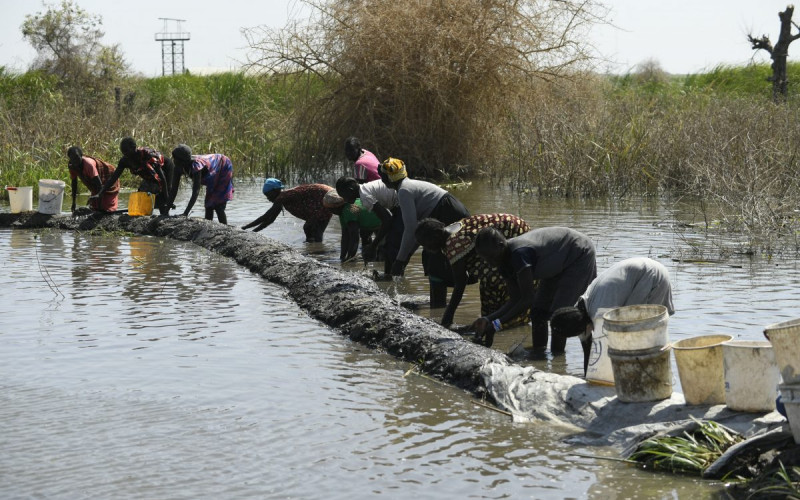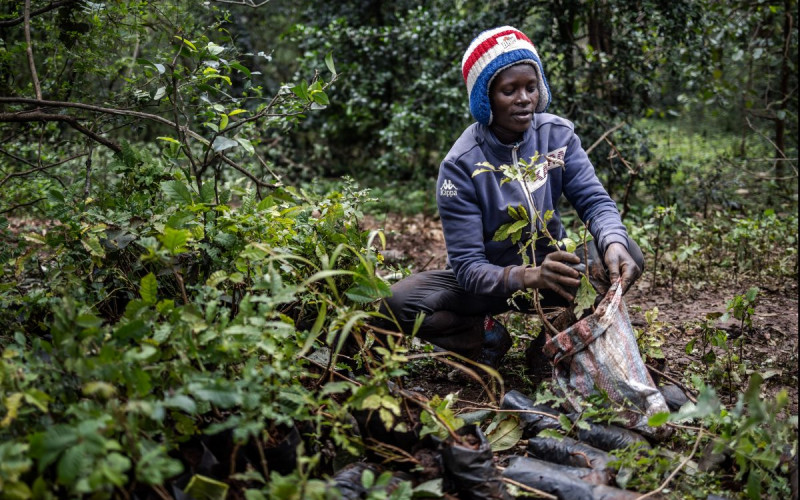As much as US$10 billion in revenues is lost annually to IUU fishing. IUU fishing flourishes because poor coastal countries do not have the capacity to monitor and control their respective EEZ’s. In addition to severe revenue loss, IUU in the SADC region exacerbates food insecurity and threatens the livelihoods of coastal people dependent on the fishing industry. Moreover IUU accelerates environmental losses, such as the collapse of fishing stocks and habitat destruction.
IUU fishing has distinct economic, environmental and social impacts. Namely, direct and indirect loss of revenue, impact on by-catch species (unintended catches of marine species caught in fishing nets such as sharks and turtles), ghost fishing (continued entanglement of marine species in discarded nets), habitat destruction (bottom trawling, poison and dynamite fishing), and loss of livelihood and food insecurity.
In response to the threat of IUU fishing, the SADC ministerial conference in Windhoek recently culminated in Ministers of the respective fisheries departments of eight of the coastal SADC states signing a ‘statement of commitment’ (SoC) to halt IUU fishing in the region. The conference was the first of its kind in which governments of the region joined forces to save their marine resources.
The conference was particularly timely as globally, the demand for fish and marine products are increasing and the vast majority of marine resources are already harvested to maximum levels of exploitation and many are severely depleted. Notwithstanding the existing pressures on fish stocks, such as pollution and habitat destruction, climate change is also having a great impact on marine resources and it is not always clear the extent of the impact resulting from climate change. Given the importance of marine resources and the uncertainty of how stocks are being affected by natural phenomena it is imperative that IUU becomes one less factor impacting on the sustainability of fish stocks.
The conference addressed the issues of (1) strengthening monitoring, control and surveillance (MCS) capacity and capabilities, (2) regional cooperation and communication, (3) engagement in the chain of custody and (4) the strengthening of governance.
By using the three C’s (commitment, cooperation and communication) to combat IUU fishing, it is hoped that the coastal states will be able to protect the other three C’s (the Agulhas, Benguela and Somali currents) of the SADC region.
Despite the launching of a number of policy instruments aimed at tackling the issue of IUU fishing, such as the 2001 SADC protocol on fisheries, the 2001-2006 SADC MCS programme, the Indian Ocean Commission MCS programme and the Stop illegal fishing campaign, acute challenges persist. These include:
- The lack of MCS capacity and capability
- The absence of a legal framework to deal with illegality within the maritime fishing sector resulting in poor information sharing between states
- Penalties are not severe enough to be a deterrent to illegal fishing operators
- Aspects of the SADC protocol on fisheries are not adequately implemented
- On the east coast of the SADC region, porous borders continue to be a problem and there are some areas where the borders are not clearly defined
Thus clear policy is needed to deal with the question of IUU fishing. It is also vital a robust prosecutorial system to be established to bring perpetrators of illegal fishing to book. This, in turn, requires national and regional awareness-raising of the extent of the impact of IUU fishing on SADC countries.
The issue of transhipment at sea, which sees illegal and legal vessels working in conjunction, continues to plague monitoring efforts and increases the difficulty of tracking the origin of catches. Therefore consideration must be given to the banning of transhipment at sea. But with the sharp rise in global fuel costs, it is likely that the fishing industry will resist such a ban as it would require vessels to travel regularly into ports to record and off-load their catch at considerable cost.
The most important instrument suggested to combat IUU fishing is the establishment of a regional MCS centre that will serve as a coordination mechanism to ensure information sharing.
It also important to involve all stakeholders in the fight against IUU fishing as it is not just the responsibility of governments, but also industry stakeholders, law enforcement and the judiciary as well as all those in the chain of custody right up to the consumers in Europe, one of the primary markets where illegal fish are consumed.
MCS capability needs to be improved across the region. Countries such as Mozambique have been working on enhancing their MCS capabilities over the past 5 years and Mozambique is currently revising its fishery legislation such that it is in line with international policy instruments. The point of harmonisation of legislation throughout the region is also critical in the fight against IUU fishing.
However, regional cooperation and collaboration in the realm of MCS is not easy. There are many players involved in MCS including, fisheries administration, fishery control agencies, transport and maritime authorities, research institutions, the navy and coastal guards, police, customs, tax and revenue institutions, the fishing industry as well as civil society and NGO’s. Thus enforcement is performed by many players with no communication and little coordination of roles and responsibilities.
There are also considerable financial and personnel costs involved in cooperation and often platforms for cooperation do not exist. Furthermore because of the costs involved there is a lack of synchronisation between national and regional MCS programmes.
At the conclusion of the SADC Ministerial conference a ‘statement of commitment’ (SoC) was signed by all 8 SADC coastal states that placed the tackling of IUU fishing firmly on governments’ agenda. The SoC highlights the need for regional cooperation and provides clear timeframes in which policies on IUU fishing are to be implemented. However, it remains unclear how will governments fund the implementation of national plans of action to combat IUU, a critical element especially in states that are currently under-resourced. Yet whilst the signing of the SoC marked the end of the conference, it also marked the beginning of a new and hopeful phase in the struggle to tackle the scourge of IUU fishing in the SADC region.







